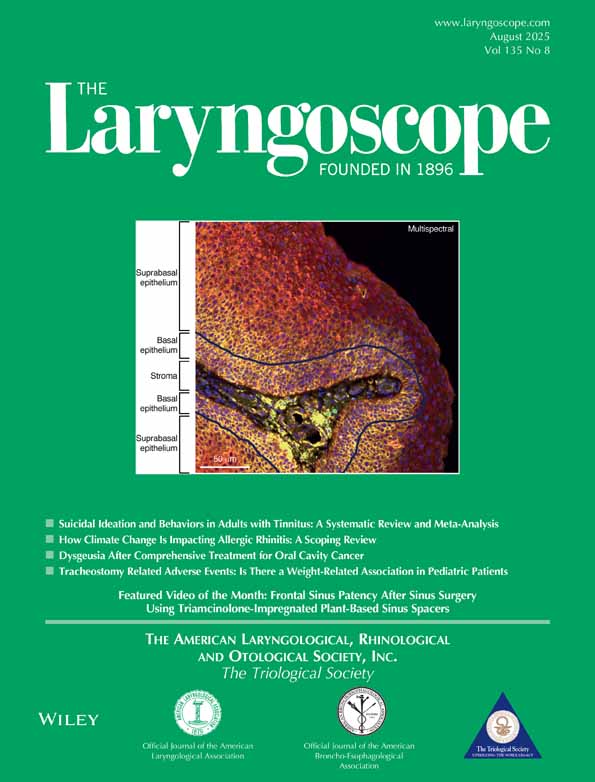Transoral laser microsurgery (TLM) ± adjuvant therapy for advanced stage oropharyngeal cancer†‡
Outcomes and prognostic factors
Presented at the Triological Society Southern and Middle Combined Sections Meeting, Bonita Springs, Florida, U.S.A., January 8–11, 2009.
This study was performed at Washington University School of Medicine, St. Louis, Missouri, U.S.A. The authors have no conflicts of interest to disclose.
Abstract
Objectives/Hypothesis:
Document survival, prognostic variables, and functional outcomes of patients with AJCC stage III or IV oropharyngeal cancer, treated with transoral laser microsurgery (TLM) ± adjuvant therapy.
Study Design:
Analysis of prospectively assembled data pertaining to the above-described patient cohort.
Methods:
Patients treated with TLM for AJCC stage III or IV oropharyngeal cancer at Washington University School of Medicine from 1996 to 2006 were followed for a minimum of 2 years. Recurrence, survival, functional, and human papilloma virus data were analyzed.
Results:
Eighty-four patients met inclusion criteria. Mean follow-up was 52.6 months. Overall AJCC stages were: III 15% and IV 85%. T stages were T1–2, 74%; T3–4, 26%. Eighty-three patients underwent neck dissection, 50 received adjuvant radiotherapy, and 28 received adjuvant chemoradiotherapy. Overall survival at 2 and 5 years was 94% and 88%, respectively. Disease-specific survival at 2 and 5 years was 96% and 92%, respectively. Six patients recurred (7%): locally (one), regionally (four), and distant (five). T stage, positive margins, and p16 status significantly impacted survival. The addition of adjuvant chemotherapy in high-risk patients did not significantly impact survival. Five patients (6%) had major surgical complications, but without mortality. Eighty-one percent of patients had acceptable swallowing function at last follow-up. Immediately postoperatively, 17% required G-tubes, which dropped to 3.4% of living patients at 3 years.
Conclusions:
In this population, our findings validate TLM ± adjuvant therapy as a highly effective strategy for survival, locoregional control, and swallowing recovery in AJCC stage III and IV oropharyngeal cancer. Our finding also show that p16 positivity improves survival. Laryngoscope, 2009




